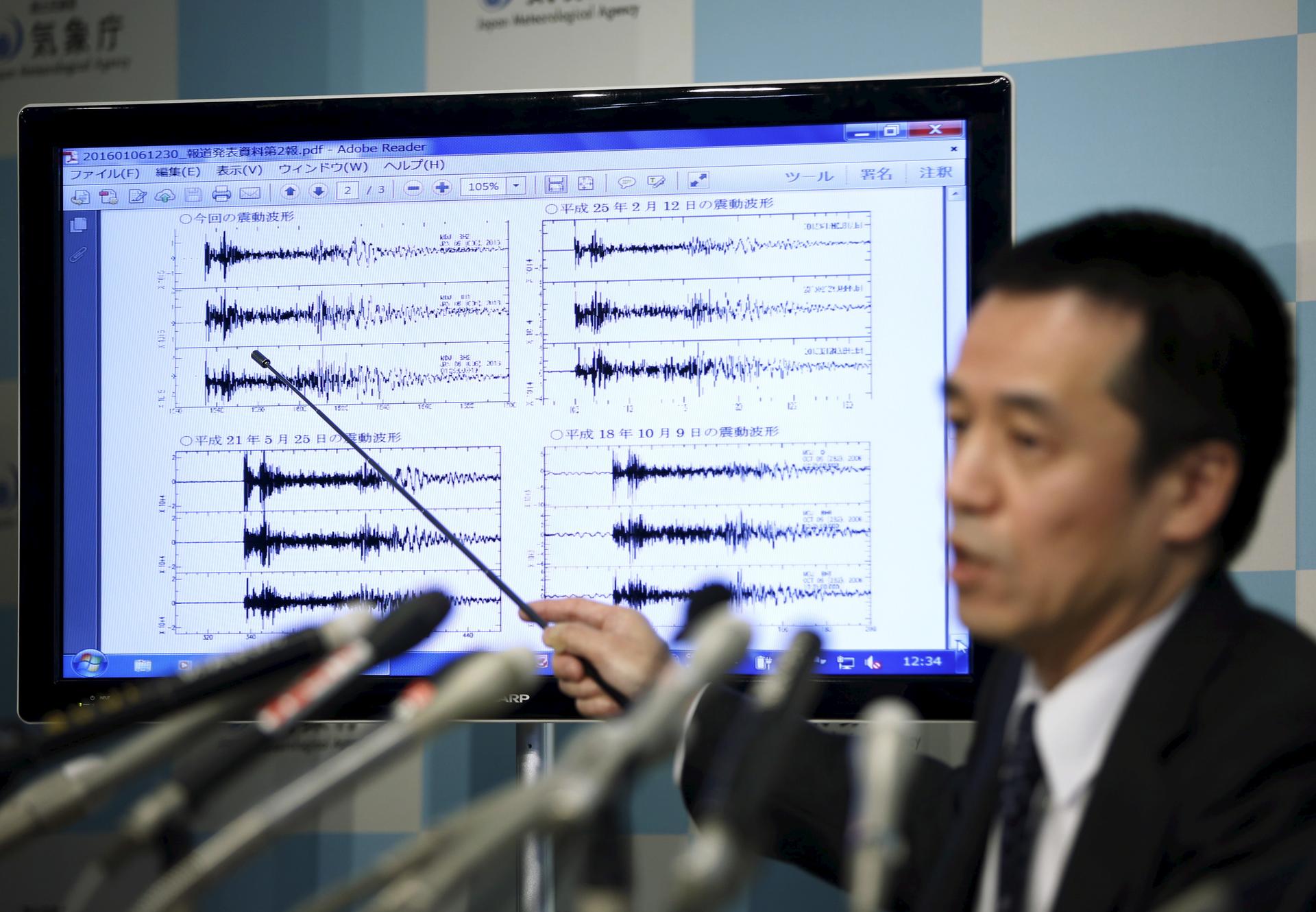World condemns North Korea’s claim to have tested an H-Bomb, despite doubts
A Japan’s chief seismologist, Yohei Hasegawa, shows data from the moment of North Korea’s claim of a nuclear test. The evidence suggests it was not a hydrogen bomb as Pyongyang claims
There has been strong condemnation around the world of North Korea’s latest nuclear test. Pyongyang claims to have tested a hydrogen bomb, although foreign experts dispute that, with the White House going so far as to say initial analysis of underground activity in North Korea "is not consistent" with an H-Bomb.
That hasn’t stopped complaints coming in. The United Nations Security Council met in emergency session and is moving toward new sanctions against North Korea.
Japan and South Korea talked of a "deliberate provocation." And even Pyongyang’s closest ally, China, has condemned the attack in unusually strong terms. Beijing is reported to be particularly annoyed that it did not get any advance warning.
“The Chinese have been less than happy with Kim Jong-un for quite a long time,” says The World’s former Beijing correspondent, Mary Kay Magistad. “They don’t necessarily want North Korea to be acting out in this way, on an on-going basis, which it’s been doing for as long as I’ve been covering China over the course of 20 years.”
“Basically what happens is that when North Korea feels it’s not getting the attention it wants, it’s not getting the aid it wants, it feels threatened in any way, it will play this card,” says Magistad. “It’s the one card that it really has to play, and usually it does get some kind of response that works in its favor, although that’s been less the case under the Obama administration.”
A hydrogen bomb is exponentially more powerful than a simple atomic bomb, up to 1000 times more destructive than, say, the bomb dropped on Hiroshima in 1945.
Sesimologists recorded a blast equivalent to an earthquake of magnitude 5.1 on the Richter scale. That’s roughly comparable to North Korea’s previous atomic tests. So was it an H-Bomb?
“That’s the million dollar question,” says Anna Fifield, Tokyo bureau chief for the Washington Post. “We don’t know yet. But the signs are it was not. The analysts I’ve spoken with today, and the South Korean military, have all said it was not an H-Bomb because the size of the explosion just wasn’t big enough.”
“But right now there are American and Japanese sniffer planes out there, trying to pick up any radioactive gases, so they can tell more about this test,” adds the Post’s Fifield. “So in the next few days, possibly weeks, we will have a much better idea of this.”
International pressure is unlikely to persuade Pyongyang to give up the bomb, according to Magistad.
“North Korea’s official news agency just in the past few days said ‘why would you drop your sword when there’s a pack of wolves coming at you?’ So that’s how they see it. We’ve got this nuclear deterrent. We’re not giving it up. And, in fact, we’re just going to remind people every so often that we have it, and that we can do something with it. So you need to take us seriously. You need to treat us with respect. And by the way, if you’d like to give us some aid, that would be good too.”
The World is an independent newsroom. We’re not funded by billionaires; instead, we rely on readers and listeners like you. As a listener, you’re a crucial part of our team and our global community. Your support is vital to running our nonprofit newsroom, and we can’t do this work without you. Will you support The World with a gift today? Donations made between now and Dec. 31 will be matched 1:1. Thanks for investing in our work!
